MiraculousMM [he/him, any]
- 748 Posts
- 3.37K Comments
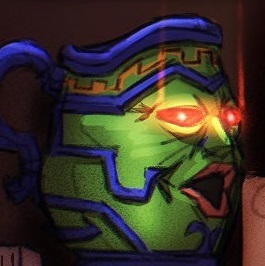 ·6 days ago
·6 days agoThe pain is a good thing. The suffering of passage is a good thing. Pain is a clarifying agent, if you allow yourself to feel it out, and to let it carve its course as gravity would channel water down a hill.
I really needed to hear this. The discomfort and suffering of facing my most difficult emotions and worst impulses isn't something I should run from. It's not only productive and necessary, but it's genuinely GOOD for me in the long run. The idea of embracing the suffering and even welcoming it is fuckin hard for me to accept, but if I want to grow and move forward with my life that's the way out.
Never apologize for being late, your insights are always incredibly valuable and I appreciate you being here

 ·7 days ago
·7 days agoWomen are responsible for their dating choices.
You are an incel fuck off
 ·7 days ago
·7 days agoI've thoroughly enjoyed this reading circle and hope to join the next one, whenever that may be!
I'm planning to host another right after this one, haven't settled on a book yet though. I've been considering Caliban and the Witch but I'm open to any suggestions!
 ·7 days ago
·7 days agoOften in my lectures when I use the phrase “imperialist white-supremacist capitalist patriarchy” to describe our nation’s political system, audiences laugh. No one has ever explained why accurately naming this system is funny. The laughter is itself a weapon of patriarchal terrorism. It functions as a disclaimer, discounting the significance of what is being named. It suggests that the words themselves are problematic and not the system they describe. I interpret this laughter as the audience’s way of showing discomfort with being asked to ally themselves with an antipatriarchal disobedient critique. This laughter reminds me that if I dare to challenge patriarchy openly, I risk not being taken seriously.
I highly recommend reading the book because right now
 is what you're doing
is what you're doing
 ·8 days ago
·8 days agoChapter 8 is surprisingly short but reading her examples of how patriarchy is portrayed in the media reminded me of a ton of other works where the reactionary masculine ideal is just presented as default and normal without even a shred of analysis. The dominator model and the idea that men have to assert their will on the world through violence is everywhere in media. Look at capeshit movies and how they’ve so thoroughly diffused into the cultural zeitgeist by always showing the heroes (usually white cishet men) beating up and shooting the “bad guys” and how it's so heroic and badass and masculine. We even get plenty of racism in there too, like in the first Iron Man movie where the chiseled playboy weapons dealing white man gets captured by those mean evil Arab terrorists, then shoots his way out, and later on comes back to kill more of them because reasons. This shit is everywhere man.
I’ve been watching The Sopranos for the first time recently and let me tell ya on top of being a fantastic show in its own right it’s been very fucking interesting to watch alongside reading this book. Everything hooks describes about patriarchal masculinity is on full display in that show, the writers clearly understand patriarchy and how it functions extremely well. Some of my favorite scenes are with Tony at his therapist’s office, slowly and painfully working through his feelings and several times getting right to the cusp of dealing with his underlying trauma before saying “fuck this, bye” and refusing to do the work. And so the cycle of destructive patriarchal rage continues and everyone around him suffers and oftentimes dies for it. I’m only through 4 seasons so far and I’m very curious to see if he or any of the other murderous scumbags in the cast end up genuinely changed for the better by the end. I’d love to discuss Sopranos further with people, just pls no spoilers for seasons 5 and 6.
Chapter 9’s discussion of what true intimacy looks like has me thinking a lot about my own conceptions, past and present, of what it means, especially in romantic relationships. I wasn’t perfect about being vulnerable in past relationships but I found it much easier once I got to know the women I was involved with reasonably well. But even then, there was still so much of my internal world that I just never even got close to expressing, so much vulnerability that felt like too much to share even with an intimate partner. This passage hit me hard:
Before most men can be intimate with others, they have to be intimate with themselves. They have to learn to feel and to be aware of their feelings. Men who mask feelings or suppress them simply do not want to feel the pain. Since emotional pain is the feeling that most males have covered up, numbed out, or closed off, the journey back to feeling is frequently through the portal of suffering. Much male rage covers up this place of suffering: this is the well-kept secret. Often when a female gets close to male pain, penetrating the male mask to see the emotional vulnerability beneath, she becomes a target for the rage.
Doing the work to engage with the deepest most repressed feelings is just that, work. It’s suffering, and that terrifies me. I spend so much of my time being lazy and sitting in a chair just trying to avoid doing real, difficult work, both physical and emotional. It takes real courage to undo patriarchal conditioning and actually CHANGE, but I want to do it, I NEED to do it, even if its hard, even if its painful as fuck.
As a final note, using the Dalai Lama as an example of “healthy masculinity” is cringe, I assume she simply wasn’t aware of the history of Tibet and the Lamas and their literal feudal serfdom. But her broader point about spirituality and how the concept of the soul is neglected in modern society is really insightful. The goal of living should be to actually live and experience and feel, not just surviving and coasting until you die. But as with patriarchy as a whole, I don’t think that’s fully possible until capitalism is completely dismantled.
 ·8 days ago
·8 days agoSending the pings now since I won't be able to do so tomorrow. No worries if you aren't caught up yet, its Christmas, the thread will remain up longer than usual to give people time to share their thoughts

@Farvana@lemmygrad.ml @FactuallyUnscrupulou@hexbear.net @Rojo27@hexbear.net @hotcouchguy@hexbear.net @ObamaSama@hexbear.net @frauddogg@hexbear.net @whatnots@hexbear.net @CaliforniaSpectre@hexbear.net @wtypstanaccount04@hexbear.net @Lalutacontinua@hexbear.net @NewOldGuard@hexbear.net @Volcatile@hexbear.net @Sulvor@hexbear.net @sewer_rat_420@hexbear.net @Frank@hexbear.net @Chronicon@hexbear.net @PM_ME_YOUR_FOUCAULTS@hexbear.net @Red_Sunshine_Over_Florida@hexbear.net @Melonius@hexbear.net @ped_xing@hexbear.net @comrade_pibb@hexbear.net @woodenghost@hexbear.net @peppersky@hexbear.net @Cowbee@hexbear.net @MaoTheLawn@hexbear.net @Lemmygradwontallowme@hexbear.net @bdazman@hexbear.net @Real_User@hexbear.net @LGOrcStreetSamurai@hexbear.net @real@hexbear.net @OgdenTO@hexbear.net @RedWizard@hexbear.net @PaX@hexbear.net @DerRedMax@hexbear.net @PKMKII@hexbear.net @PurrLure@hexbear.net @TheLepidopterists@hexbear.net @courier8377@hexbear.net @Seasonal_Peace@hexbear.net @FumpyAer@hexbear.net @Latework@hexbear.net @BrezhnevsEyebrows@hexbear.net @Esoteir@hexbear.net @Cloudx189@hexbear.net @carpoftruth@hexbear.net @BobDole@hexbear.net @vovchik_ilich@hexbear.net @NotThatKindOfFedPosting@hexbear.net @HexaSnoot@hexbear.net @sempersigh@hexbear.net @Barabas@hexbear.net @dumples@midwest.social @PerryGirl@hexbear.net
 ·8 days ago
·8 days agobell hooks talks about this in The Will to Change. Many women are still fully sold on patriarchal ideas, not as many as in the past, but women who are sold on the dominator model of relationships and the gender norms of patriarchy view having sex with men as a distinctly "feminine" act that's unattractive for the idealized patriarchal masculine partner they want.
I hate that all of these look delicious to my fat high ass
 ·11 days ago
·11 days agoREMINDER: NEW DISCUSSION THREAD ON CHAPTERS 8 AND 9 IN 3 DAYS!!!
@Farvana@lemmygrad.ml @FactuallyUnscrupulou@hexbear.net @Rojo27@hexbear.net @hotcouchguy@hexbear.net @ObamaSama@hexbear.net @frauddogg@hexbear.net @whatnots@hexbear.net @CaliforniaSpectre@hexbear.net @wtypstanaccount04@hexbear.net @Lalutacontinua@hexbear.net @NewOldGuard@hexbear.net @Volcatile@hexbear.net @Sulvor@hexbear.net @sewer_rat_420@hexbear.net @Frank@hexbear.net @Chronicon@hexbear.net @PM_ME_YOUR_FOUCAULTS@hexbear.net @Red_Sunshine_Over_Florida@hexbear.net @Melonius@hexbear.net @ped_xing@hexbear.net @comrade_pibb@hexbear.net @woodenghost@hexbear.net @peppersky@hexbear.net @Cowbee@hexbear.net @MaoTheLawn@hexbear.net @Lemmygradwontallowme@hexbear.net @bdazman@hexbear.net @Real_User@hexbear.net @LGOrcStreetSamurai@hexbear.net @real@hexbear.net @OgdenTO@hexbear.net @RedWizard@hexbear.net @PaX@hexbear.net @DerRedMax@hexbear.net @PKMKII@hexbear.net @PurrLure@hexbear.net @TheLepidopterists@hexbear.net @courier8377@hexbear.net @Seasonal_Peace@hexbear.net @FumpyAer@hexbear.net @Latework@hexbear.net @BrezhnevsEyebrows@hexbear.net @Esoteir@hexbear.net @Cloudx189@hexbear.net @carpoftruth@hexbear.net @BobDole@hexbear.net @vovchik_ilich@hexbear.net @NotThatKindOfFedPosting@hexbear.net @HexaSnoot@hexbear.net @sempersigh@hexbear.net @Barabas@hexbear.net @dumples@midwest.social @PerryGirl@hexbear.net
HALLS OF TORMENT STAYS WINNING

Tbh zack snyder's superman is fitting here in more ways than one
 ·15 days ago
·15 days agohooks’ description of the emotionally crippling nature of work under capitalism in chapter 6 is really striking and enhances everything else she’s talked about up to this point by reminding us, the reader, that all of these attritbutes of patriarchy are taking place within the economic system of capitalism. She writes:
Of course [sexist men and women] do not critique the economy that makes it necessary for all adults to work outside the home; instead they pretend that feminism keeps women in the workforce. Most women work because they want to leave the house and because their families need the income to survive, not because they are feminists who believe that their working is a sign of liberation.
This, combined with her describing a system under which men and women alike have the opportunity to take breaks from work solely for self-care and forming meaningful relationships, really drives home the idea that patriarchy will never be totally dismantled until capitalism is dismantled alongside it. The ruling class doesn’t want emotionally and relationally mature workers, they want loyal servants who put the sale of their labor above everything else.
She adds: “...individual men are engaged in the work of emotional recovery every day, but the work is not easy because they have no support systems within patriarchal culture, especially if they are poor and working-class.” In other places in the chapter she distinguishes between feminist theory written largely by class-privileged writers and how they’re out of touch with the lived experiences of poor and working-class women who understand male (and their own) dissatisfaction with work much better. The way work overrides all other aspects of life under capitalism is a huge reason why it’s so hard for men to heal and grow emotionally because who has the fucking time?
Chapter 7 is a bit of a mixed bag for me. Like earlier in the book, hooks only speaks in terms of the gender binary without any discussion of trans and NB identities, which imo really undercuts the point she’s trying to make about reclaiming masculinity and “male bodies” by literally defining “male being” as “of the human body that has a penis”. Like I understand her broad point but idk if she is simply leaving out queer identities (apart from a few mentions of gay men) to make the book more stomachable for cishet men and women who may be new to feminist ideas, or if she simply doesn’t have good insight into how queer people fit into this picture. Either way it did not vibe right with me at all.
She does go on to share some great insight into who the mindsets of men need to change, namely away from the “dominator model” to something healthier:
What the world needs now is liberated men who have the qualities Silverstein cites, men who are “empathic and strong, autonomous and connected, responsible to self, to family and friends, and to society, and capable of understanding how those responsibilities are, ultimately, inseparable.” Men need feminist thinking. It is the theory that supports their spiritual evolution and their shift away from the patriarchal model. Patriarchy is destroying the well-being of men, taking their lives daily.
Yes that’s right mascs of Hexbear, believe it or not you actually have a responsibility to your fellow comrades and society as a whole. No you do not get a free pass to come in and shit the place up with paragraphs defending your imaginary right to say whatever shit you want without any repercussions or moderation. So many of you are still locked into the dominator model that hooks describes here, but you DO NOT HAVE to maintain this, and you CAN NOT if you want a happier and healthier emotional world.
I’ll end with this banger quote that I absolutely love. Again, every masc on this site should at least read this (emphasis mine):
A Masai wise man, when asked by Terrence Real to name the traits of a good warrior, replied, “I refuse to tell you what makes a good morani [warrior]. But I will tell you what makes a great morani. When the moment calls for fierceness, a good morani is very ferocious. And when the moment calls for kindness, a good morani is utterly tender. Now, what makes a great morani is knowing which moment is which.” We see that females who are raised with the traits any person of integrity embodies can act with tenderness, with assertiveness, and with aggression if and when aggression is needed.
Men who are able to be whole, undivided selves can practice the emotional discernment beautifully described by the Masai wise man precisely because they are able to relate and respond rather than simply react. Patriarchal masculinity confines men to various stages of reaction and overreaction. Feminist masculinity does not reproduce the notion that maleness has this reactionary, wild, uncontrolled component; instead it assures men and those of us who care about men that we need not fear male loss of control. The power of patriarchy has been to make maleness feared and to make men feel that it is better to be feared than to be loved. Whether they can confess this or not, men know that it just is not true.
I will probably post more thoughts later after I’ve considered these chapters more. Lots of great stuff in here despite my reservations about her lack of queer identity discussion.
 ·15 days ago
·15 days ago DISCUSSION TIME!!!!
DISCUSSION TIME!!!! 
@Farvana@lemmygrad.ml @FactuallyUnscrupulou@hexbear.net @Rojo27@hexbear.net @hotcouchguy@hexbear.net @ObamaSama@hexbear.net @frauddogg@hexbear.net @whatnots@hexbear.net @CaliforniaSpectre@hexbear.net @wtypstanaccount04@hexbear.net @Lalutacontinua@hexbear.net @NewOldGuard@hexbear.net @Volcatile@hexbear.net @Sulvor@hexbear.net @sewer_rat_420@hexbear.net @Frank@hexbear.net @Chronicon@hexbear.net @PM_ME_YOUR_FOUCAULTS@hexbear.net @Red_Sunshine_Over_Florida@hexbear.net @Melonius@hexbear.net @ped_xing@hexbear.net @comrade_pibb@hexbear.net @woodenghost@hexbear.net @peppersky@hexbear.net @Cowbee@hexbear.net @MaoTheLawn@hexbear.net @Lemmygradwontallowme@hexbear.net @bdazman@hexbear.net @Real_User@hexbear.net @LGOrcStreetSamurai@hexbear.net @real@hexbear.net @OgdenTO@hexbear.net @RedWizard@hexbear.net @PaX@hexbear.net @DerRedMax@hexbear.net @PKMKII@hexbear.net @PurrLure@hexbear.net @TheLepidopterists@hexbear.net @courier8377@hexbear.net @Seasonal_Peace@hexbear.net @FumpyAer@hexbear.net @Latework@hexbear.net @BrezhnevsEyebrows@hexbear.net @Esoteir@hexbear.net @Cloudx189@hexbear.net @carpoftruth@hexbear.net @BobDole@hexbear.net @vovchik_ilich@hexbear.net @NotThatKindOfFedPosting@hexbear.net @HexaSnoot@hexbear.net @sempersigh@hexbear.net @Barabas@hexbear.net @dumples@midwest.social @PerryGirl@hexbear.net

 ·16 days ago
·16 days agoWtf does "free will" have to do with anything OP said
 ·17 days ago
·17 days agoREMINDER: CHAPTERS 6 AND 7 DISCUSSION IN 3 DAYS (12/18)
@Farvana@lemmygrad.ml @FactuallyUnscrupulou@hexbear.net @Rojo27@hexbear.net @hotcouchguy@hexbear.net @ObamaSama@hexbear.net @frauddogg@hexbear.net @whatnots@hexbear.net @CaliforniaSpectre@hexbear.net @wtypstanaccount04@hexbear.net @Lalutacontinua@hexbear.net @NewOldGuard@hexbear.net @Volcatile@hexbear.net @Sulvor@hexbear.net @sewer_rat_420@hexbear.net @Frank@hexbear.net @Chronicon@hexbear.net @PM_ME_YOUR_FOUCAULTS@hexbear.net @Red_Sunshine_Over_Florida@hexbear.net @Melonius@hexbear.net @ped_xing@hexbear.net @comrade_pibb@hexbear.net @woodenghost@hexbear.net @peppersky@hexbear.net @Cowbee@hexbear.net @MaoTheLawn@hexbear.net @Lemmygradwontallowme@hexbear.net @bdazman@hexbear.net @Real_User@hexbear.net @LGOrcStreetSamurai@hexbear.net @real@hexbear.net @OgdenTO@hexbear.net @RedWizard@hexbear.net @PaX@hexbear.net @DerRedMax@hexbear.net @PKMKII@hexbear.net @PurrLure@hexbear.net @TheLepidopterists@hexbear.net @courier8377@hexbear.net @Seasonal_Peace@hexbear.net @FumpyAer@hexbear.net @Latework@hexbear.net @BrezhnevsEyebrows@hexbear.net @Esoteir@hexbear.net @Cloudx189@hexbear.net @carpoftruth@hexbear.net @BobDole@hexbear.net @vovchik_ilich@hexbear.net @NotThatKindOfFedPosting@hexbear.net @HexaSnoot@hexbear.net @sempersigh@hexbear.net @Barabas@hexbear.net @dumples@midwest.social @PerryGirl@hexbear.net
 ·21 days ago
·21 days agoIn chapter 4 hooks brings up another example of how masc views on violence are directly shaped by patriarchy, similar to the story about the survey earlier in the book:
When researchers looking at date [SA] interviewed a range of college men and found that many of them saw nothing wrong with forcing a woman sexually, they were astounded. Their findings seemed to challenge the previously accepted notion that [SA] was aberrant male behavior. While it may be unlikely that any of the men in this study were or became [sexual assaulters], it was evident that given what they conceived as the appropriate circumstance, they could see themselves being sexually violent. Unconsciously they engage in patriarchal thinking, which condones [SA] even though they may never enact it.
This is a patriarchal truism that most people in our society want to deny. Whenever women thinkers, especially advocates of feminism, speak about the widespread problem of male violence, folks are eager to stand up and make the point that most men are not violent. They refuse to acknowledge that masses of boys and men have been programmed from birth on to believe that at some point they must be violent, whether psychologically or physically, to prove that they are men.
Very interesting to read in the wake of MeToo and #NotAllMen, even 20 years ago hooks was calling out the self-centered dorks who refuse to listen to women who’ve been saying with their whole chests how bad sexual violence is. This is another of those passages that I wish all mascs would read to understand that even if you have relatively good intentions, even if you are not an SA'er or a violent misogynist, you are not immune to patriarchal brainworms, especially if you haven’t made the effort to purge them.
Her description of how patriarchal mothers shape their sons’ worldviews is particularly fascinating to me:
Many teenage boys have violent contempt and rage for a patriarchal mom because they understand that in the world outside the home, sexism renders her powerless; he is pissed that she has power over him at home. He does not see her autocratic rule in the home as legitimate power. As a consequence, he may be enraged at his mom for using the tactics of psychological terrorism to whip him into shape and yet respond with admiration toward the male peer or authority figure who deploys similar tactics. In patriarchal culture boys learn early that the authority of the mother is limited, that her power comes solely from being a caretaker of patriarchy. When she colludes with adult male abuse of her son, she (or later a symbolic mother substitute) will be the target of his violence.
Reading this made something click in my head. Women married to patriarchal men and even single mothers who haven’t excised their patriarchal brainworms play a key role in perpetuating the culture, a point which hooks has made many times already but seeing a clear example laid out like this just makes it all make so much more sense. The anecdote about young boys watching Incredible Hulk and saying they’d “smash their mommies” is pretty horrifying and illustrates the point so distinctly. And she makes it clear that it's the responsibility of both men and women to work towards ending this cycle of “normal traumatization”.
In How Can I Get Through to You? Terrence Real includes a chapter titled “A Conspiracy of Silence,” in which he emphasizes that we are not allowed in this culture to speak the truth about what relationships with men are really like. This silence represents our collective cultural collusion with patriarchy. To be true to patriarchy we are all taught that we must keep men’s secrets. Real points out that the fundamental secret we share is that we will remain silent: “When girls are inducted into womanhood, what is it exactly that they have to say that must be silenced. What is the truth women carry that cannot be spoken. The answer is simple and chilling. Girls, women—and also young boys—all share this in common. None may speak the truth about men.”
bell hooks says gossip saves lives and she’s entirely correct
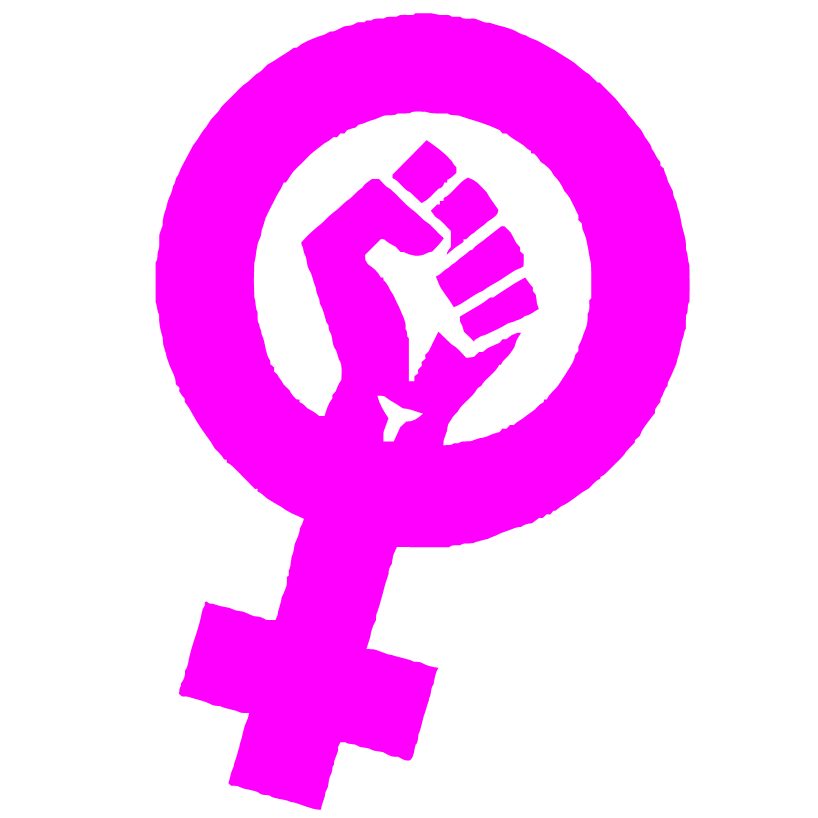
In self-help books galore the notion that women choose men who will treat them badly again and again is presented as truth. These books rarely talk about patriarchy or male domination. They rarely acknowledge that relationships are not static, that people change through time, that they adjust to circumstances. Men who may have seeds of negativity and domination within them along with positive traits may find the negative burgeoning at times of crisis in their lives.
This genuinely scares me as someone who is currently single but someday desires a loving long term relationship. The people in my life describe me as a kind, gentle and loving person, but what if all the negative emotions and pain I haven’t been socially allowed to process become too much to handle and I lash out? I want to say I don’t think I would ever become a patriarchal rage monster but the fact that it’s even possible is terrifying. When men bow at the altar of their patriarchal conditioning they’re not just hurting themselves emotionally but they’re putting everyone else around them (especially femmes) at risk, even if they have “good intentions”, whatever that means.
I connect so much with hooks’ description of how even if a man is able to fully embody the patriarchal dominator role, it’s not a satisfying existence, it’s actually soul-crushing and lonely as fuck. When I was a kid and I was trying (and failing hard) to be more macho and “dominating”, I figured out very quickly that it only made me miserable, compounded by the fact that I was a nerdy little sensitive boy who just couldn’t make that facade work. I’m extremely thankful I saw through the bullshit early on in my life because I can’t imagine putting on a front like that every single day of my life just to score social points from shitheads.
I’ll share my thoughts on chapter 5 later as I found that to be quite a heavy read that I want to process more first.
 ·22 days ago
·22 days ago ITS DISCUSSION TIME FRIENDS!!
ITS DISCUSSION TIME FRIENDS!! 
@Farvana@lemmygrad.ml @FactuallyUnscrupulou@hexbear.net @Rojo27@hexbear.net @hotcouchguy@hexbear.net @ObamaSama@hexbear.net @frauddogg@hexbear.net @whatnots@hexbear.net @CaliforniaSpectre@hexbear.net @wtypstanaccount04@hexbear.net @Lalutacontinua@hexbear.net @NewOldGuard@hexbear.net @Volcatile@hexbear.net @Sulvor@hexbear.net @sewer_rat_420@hexbear.net @Frank@hexbear.net @Chronicon@hexbear.net @PM_ME_YOUR_FOUCAULTS@hexbear.net @Red_Sunshine_Over_Florida@hexbear.net @Melonius@hexbear.net @ped_xing@hexbear.net @comrade_pibb@hexbear.net @woodenghost@hexbear.net @peppersky@hexbear.net @Cowbee@hexbear.net @MaoTheLawn@hexbear.net @Lemmygradwontallowme@hexbear.net @bdazman@hexbear.net @Real_User@hexbear.net @LGOrcStreetSamurai@hexbear.net @real@hexbear.net @OgdenTO@hexbear.net @RedWizard@hexbear.net @PaX@hexbear.net @DerRedMax@hexbear.net @PKMKII@hexbear.net @PurrLure@hexbear.net @TheLepidopterists@hexbear.net @courier8377@hexbear.net @Seasonal_Peace@hexbear.net @FumpyAer@hexbear.net @Latework@hexbear.net @BrezhnevsEyebrows@hexbear.net @Esoteir@hexbear.net @Cloudx189@hexbear.net @carpoftruth@hexbear.net @BobDole@hexbear.net @vovchik_ilich@hexbear.net @NotThatKindOfFedPosting@hexbear.net @HexaSnoot@hexbear.net @sempersigh@hexbear.net @Barabas@hexbear.net @dumples@midwest.social @PerryGirl@hexbear.net

 ·24 days ago
·24 days agoI just started watching The Sopranos and its very interesting to watch alongside reading The Will to Change. So much of what hooks describes in the book is on full display in that show, the fragile masculinity, the levers of power that patriarchal men use to control their families and other made men, Tony's personal shame over seeing a therapist, the mob men showing genuine love for each other that they never show their wives or children, and the palpably oppressive feel of the mob life. I sincerely hope Tony dies at the end of the show, he's a massive piece of shit and a terrible father and husband, at the bare minimum he needs genuine punishment for his awful deeds beyond just feeling sad forever
 ·25 days ago
·25 days agoREMINDER: CHAPTERS 4 + 5 DISCUSSION IN 3 DAYS

@Farvana@lemmygrad.ml @FactuallyUnscrupulou@hexbear.net @Rojo27@hexbear.net @hotcouchguy@hexbear.net @ObamaSama@hexbear.net @frauddogg@hexbear.net @whatnots@hexbear.net @CaliforniaSpectre@hexbear.net @wtypstanaccount04@hexbear.net @Lalutacontinua@hexbear.net @NewOldGuard@hexbear.net @Volcatile@hexbear.net @Sulvor@hexbear.net @sewer_rat_420@hexbear.net @Frank@hexbear.net @Chronicon@hexbear.net @PM_ME_YOUR_FOUCAULTS@hexbear.net @Red_Sunshine_Over_Florida@hexbear.net @Melonius@hexbear.net @ped_xing@hexbear.net @comrade_pibb@hexbear.net @woodenghost@hexbear.net @peppersky@hexbear.net @Cowbee@hexbear.net @MaoTheLawn@hexbear.net @Lemmygradwontallowme@hexbear.net @bdazman@hexbear.net @Real_User@hexbear.net @LGOrcStreetSamurai@hexbear.net @real@hexbear.net @OgdenTO@hexbear.net @RedWizard@hexbear.net @PaX@hexbear.net @DerRedMax@hexbear.net @PKMKII@hexbear.net @PurrLure@hexbear.net @TheLepidopterists@hexbear.net @courier8377@hexbear.net @Seasonal_Peace@hexbear.net @FumpyAer@hexbear.net @Latework@hexbear.net @BrezhnevsEyebrows@hexbear.net @Esoteir@hexbear.net @Cloudx189@hexbear.net @carpoftruth@hexbear.net @BobDole@hexbear.net @vovchik_ilich@hexbear.net @NotThatKindOfFedPosting@hexbear.net @HexaSnoot@hexbear.net @sempersigh@hexbear.net @Barabas@hexbear.net @dumples@midwest.social @PerryGirl@hexbear.net
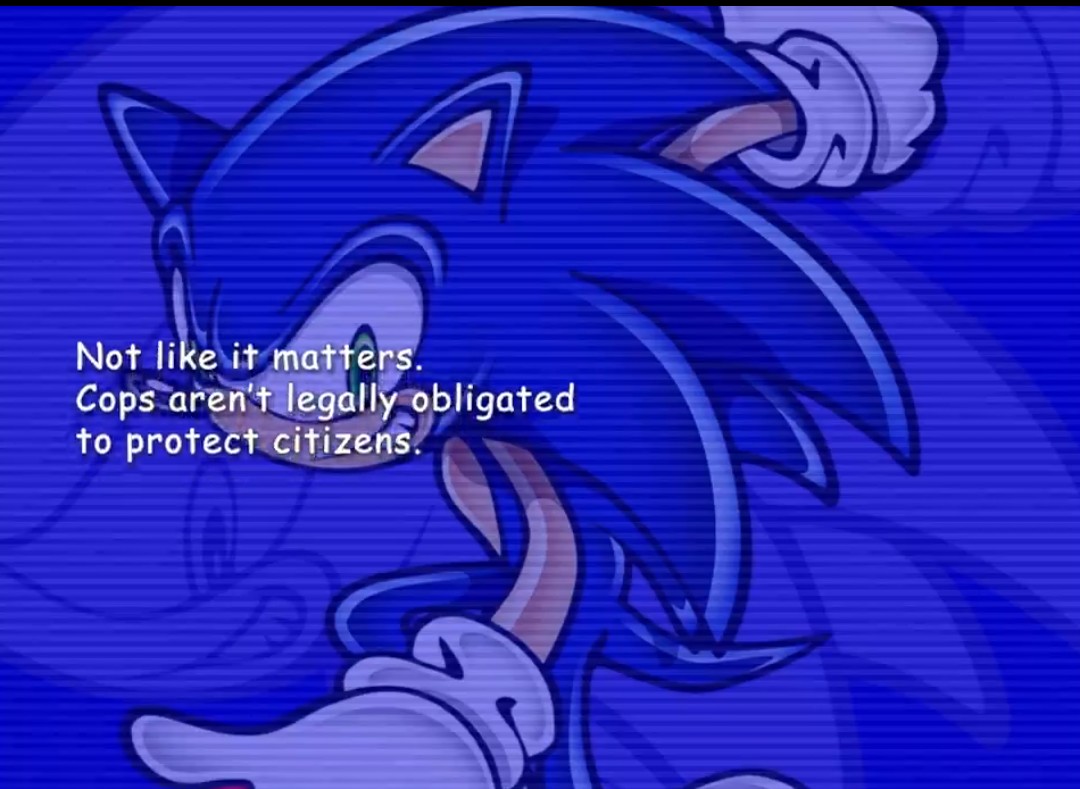





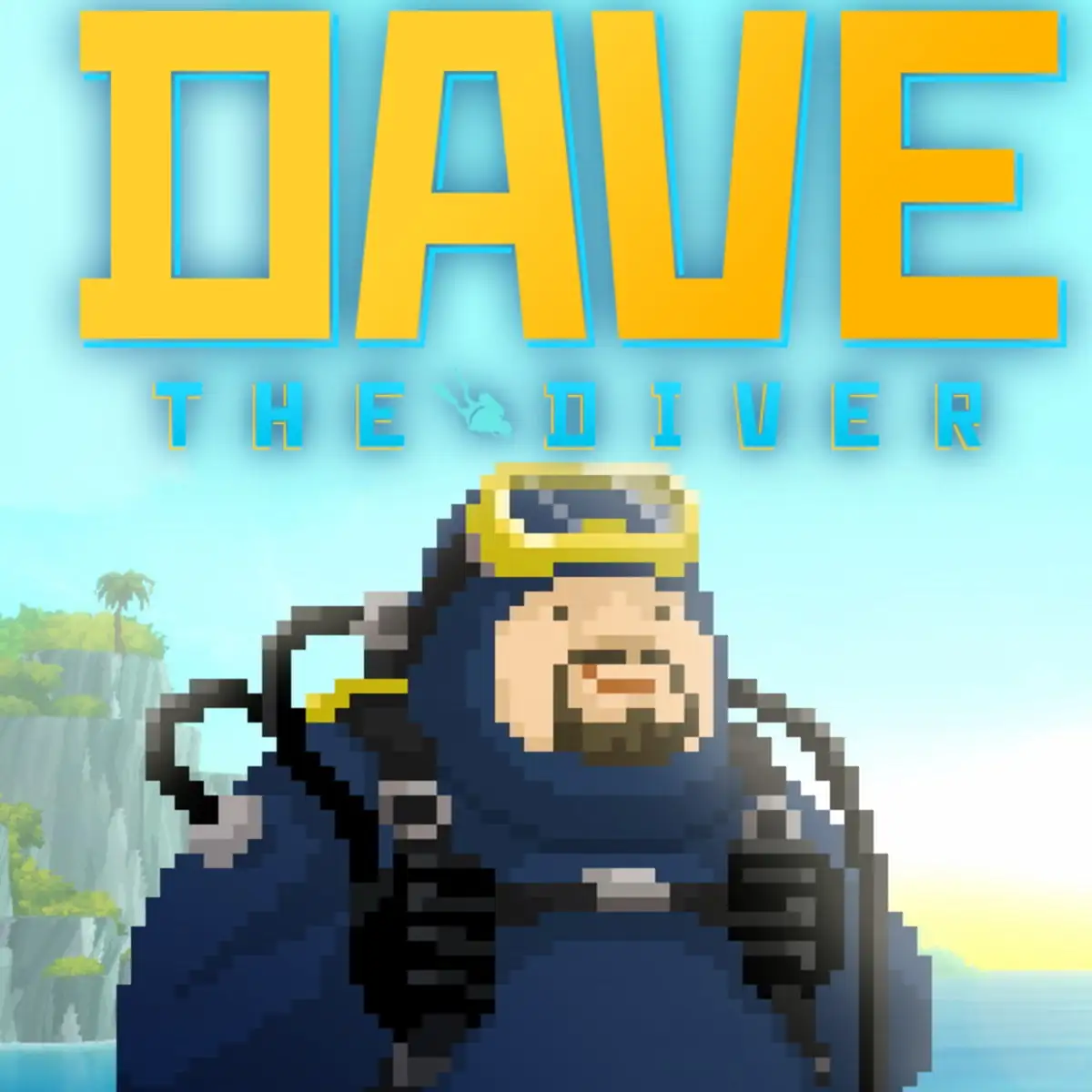
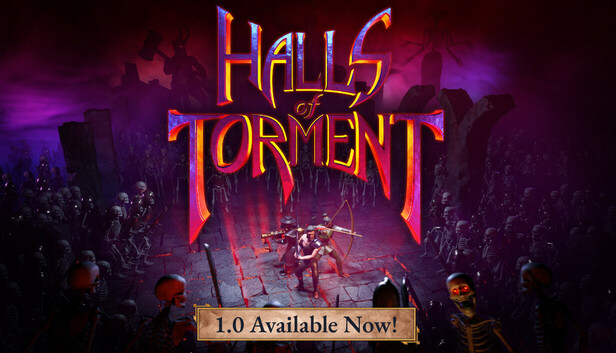



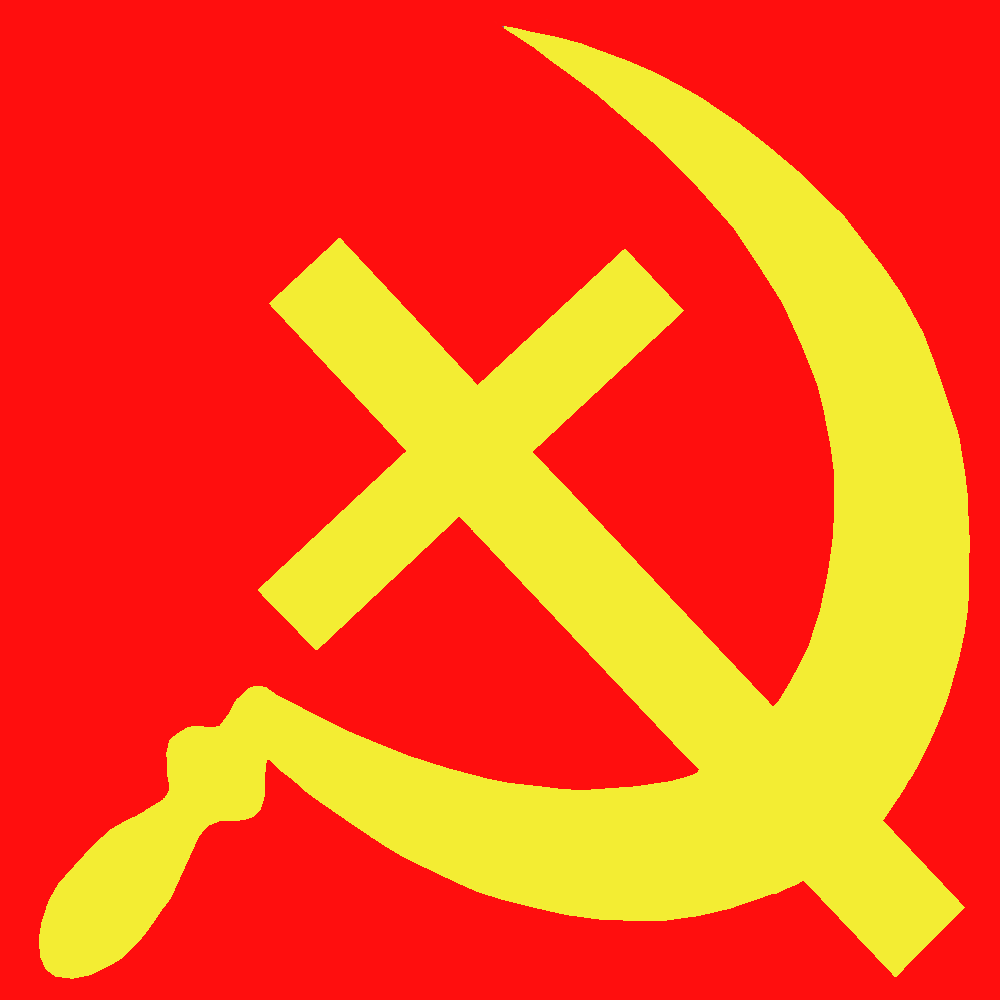
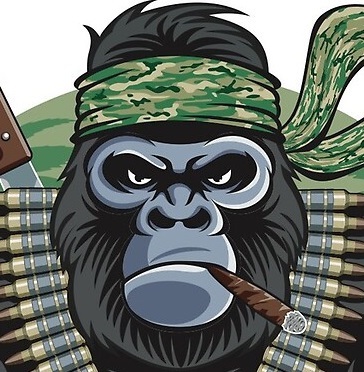
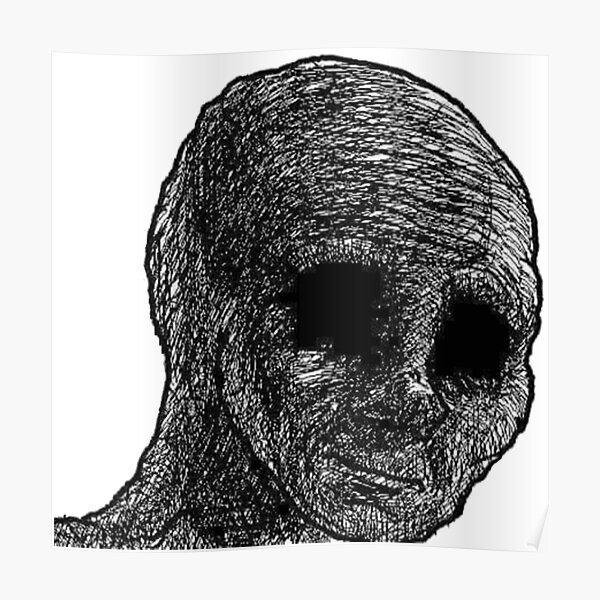

Gonna post the last discussion thread on Thursday, Jan 2nd so - two day reminder!
@Farvana@lemmygrad.ml @FactuallyUnscrupulou@hexbear.net @Rojo27@hexbear.net @hotcouchguy@hexbear.net @ObamaSama@hexbear.net @frauddogg@hexbear.net @whatnots@hexbear.net @CaliforniaSpectre@hexbear.net @wtypstanaccount04@hexbear.net @Lalutacontinua@hexbear.net @NewOldGuard@hexbear.net @Volcatile@hexbear.net @Sulvor@hexbear.net @sewer_rat_420@hexbear.net @Frank@hexbear.net @Chronicon@hexbear.net @PM_ME_YOUR_FOUCAULTS@hexbear.net @Red_Sunshine_Over_Florida@hexbear.net @Melonius@hexbear.net @ped_xing@hexbear.net @comrade_pibb@hexbear.net @woodenghost@hexbear.net @peppersky@hexbear.net @Cowbee@hexbear.net @MaoTheLawn@hexbear.net @Lemmygradwontallowme@hexbear.net @bdazman@hexbear.net @Real_User@hexbear.net @LGOrcStreetSamurai@hexbear.net @real@hexbear.net @OgdenTO@hexbear.net @RedWizard@hexbear.net @PaX@hexbear.net @DerRedMax@hexbear.net @PKMKII@hexbear.net @PurrLure@hexbear.net @TheLepidopterists@hexbear.net @courier8377@hexbear.net @Seasonal_Peace@hexbear.net @FumpyAer@hexbear.net @Latework@hexbear.net @BrezhnevsEyebrows@hexbear.net @Esoteir@hexbear.net @Cloudx189@hexbear.net @carpoftruth@hexbear.net @BobDole@hexbear.net @vovchik_ilich@hexbear.net @NotThatKindOfFedPosting@hexbear.net @HexaSnoot@hexbear.net @sempersigh@hexbear.net @Barabas@hexbear.net @dumples@midwest.social @PerryGirl@hexbear.net